Cleric Arrested In Iran's Holy City For Criticizing Supreme Leader
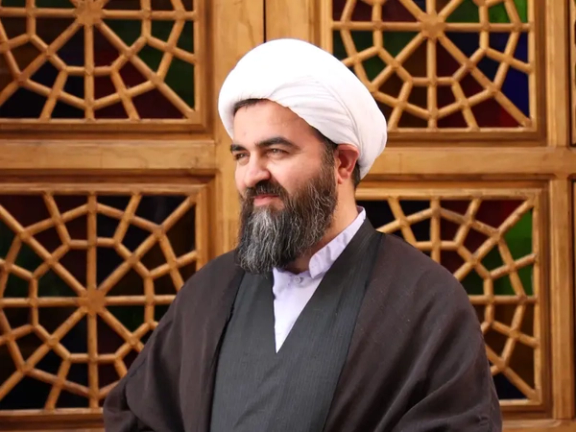
A seminary teacher was arrested by IRGC intelligence officers on Saturday in the religious city of Qom for voicing criticism of the government and the country's Supreme Leader.

A seminary teacher was arrested by IRGC intelligence officers on Saturday in the religious city of Qom for voicing criticism of the government and the country's Supreme Leader.
Last week, on the anniversary of the Iranian revolution, Mohammad-Taghi Akbarnejad said, "This day symbolizes the negation of freedom and republicanism." He also recalled Ayatollah Khamenei's pre-revolution promise of granting people the freedom to criticize leaders.
He has been summoned and interrogated multiple times by security forces and the special clerical court in Qom, notorious for his fearless criticism of the country's Supreme Leader. However, judicial or security sources have yet to confirm or deny the latest development.
Social media images, including those on Akbarnejad's Instagram account, depict supporters of the Islamic Republic gathering in Qom and demanding action against the critical cleric prior to his latest arrest.
The Islamic Republic's security institutions have a history of dealing with clerics critical of Supreme Leader Ali Khamenei's policies. These clerics have often faced harsh sentences, including imprisonment and expulsion from the clergy by the special clerical court.
His arrest follows the detainment of Abdolhamid Masoumi Tehrani, a critical cleric from Tehran, in October 2022, where some of his personal belongings were confiscated. Similarly, in 2018, Hassan Aghamiri, an active cleric on social media, received a two-year suspended sentence and permanent expulsion from the clergy by Branch 2 of the Special Clerical Court.
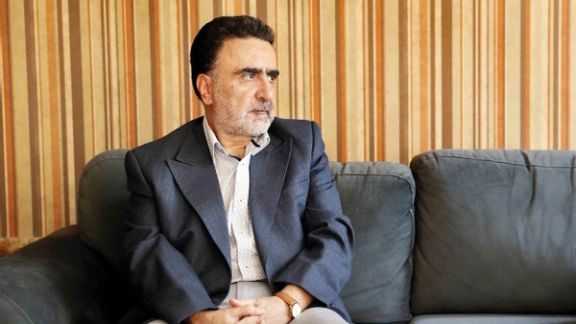
Mostafa Tajzadeh, a prominent political prisoner held in Evin Prison, accused the Supreme Leader of turning a blind eye to the nation's challenges on the eve of upcoming elections.
Tajzadeh slammed Ali Khamenei saying he "has closed his eyes to Iran's disastrous realities and ignores the cries of millions of Iranians in protest." He also highlighted widespread public disinterest in participating in the upcoming elections, stating "most Iranians have decided not to vote."
The country finds itself grappling with a myriad of economic woes that threaten to overshadow the political process. With the vote just around the corner, citizens are increasingly concerned about the state of the economy which has been battered by a combination of internal mismanagement and external pressures.
Rampant inflation and currency depreciation have eroded the purchasing power of ordinary Iranians, making it increasingly difficult for them to afford basic necessities. High unemployment rates, especially among the youth, further compound the economic distress, fueling social unrest and discontent.
In addition to the systemic issues, endemic corruption and mismanagement within the government have undermined public trust and confidence in the political establishment. Many Iranians feel disillusioned with their leaders' inability to address the root causes of economic instability and enact meaningful reforms.
The regime's heavy-handed tactics, including arrests, executions, censorship, and intimidation of political dissidents, have also created a climate of fear and mistrust among the population.
While allegations of electoral fraud have plagued previous elections in Iran, Supreme Leader Ali Khamenei maintains that the electoral process has been fair and transparent. He stated in his Sunday speech that "elections in Iran have always been healthy," dismissing claims of violations as unfounded.
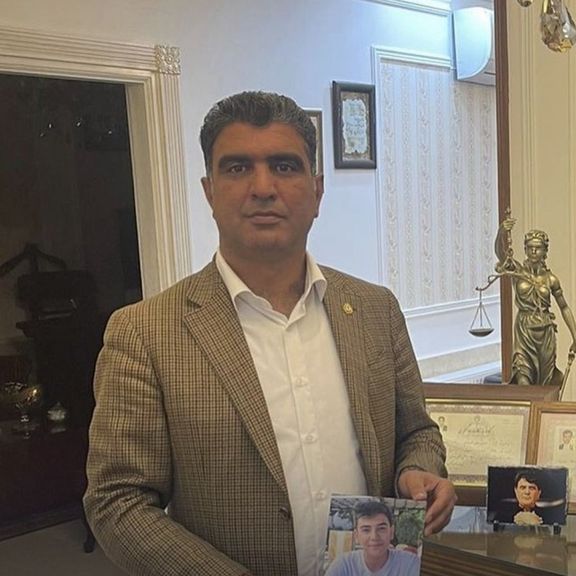
Khosrow Alikordi, an Iranian lawyer known for advocating in the cases of protesters' families, has been transferred to Vakilabad Prison to begin a one-year sentence.
Upon completion, he faces a two-year ban from legal practice.
A day before his imprisonment, Alikordi addressed Iran's Supreme Leader, Ali Khamenei, in a video message, accusing the regime of hypocrisy. "The Islamic Republic celebrates its revolution anniversary with freedom as a core slogan. Yet now you are the jailer," he said.
In January, the judiciary accused Alikordi of engaging in "propaganda against the Islamic Republic system and in favor of groups opposing the regime."
The court referred to Alikordi's engagements with both national and international media, along with his online activities and writing as evidence of "propaganda against the system."
Alikordi's harassment began when he represented families affected by the 2022 uprising.
The Iranian government has a history of targeting and detaining lawyers, civil activists, and political dissenters. The crackdown has escalated since the nationwide protests against the Islamic Republic in September 2022.
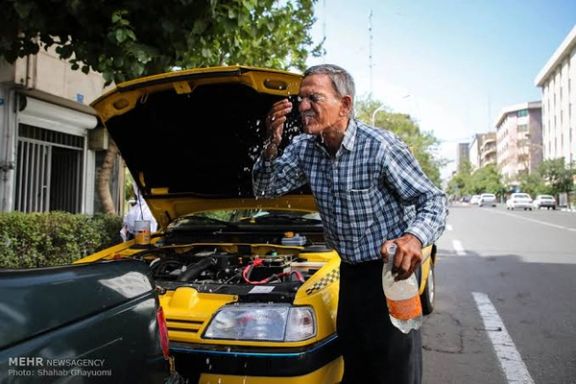
The head of Iran’s Meteorological Organization has issued a warning about the unprecedented temperature increases expected in the country.
Sahar Tajbakhsh said, "this year the country has experienced the hottest November-December in the past 33 years."
Tajbakhsh further highlighted that "the temperature in some of the country's meteorological stations, such as Parsabad in the northwestern region, has reached about 20 degrees Celsius," describing it as "a very strange record for the country."
While the global temperature rise due to climate change has become a crisis worldwide, its rapid and intense impact in regions like Iran has led to drought and water stress.
The Meteorological Organization recently reported that the total precipitation in Iran from the beginning of the hydrological year (October) until February 8th has been below the long-term average for the period.
This situation is occurring despite several periods of widespread snow and rain in vast areas of Iran, which had raised hopes for a reduction in the water crisis among the general public.
However, according to the National Water and Wastewater Company, as of January 23, 339 cities in Iran are experiencing water shortages, indicating an increase compared to last year.
According to reports, over the past seven years, one-fourth of Iran's farmers have been deprived of their livelihoods, primarily as a result of water scarcity.
The consequences of the drought reach beyond economic realms, with soil erosion, desertification, and dust storms impacting nearly half of Iran's population.
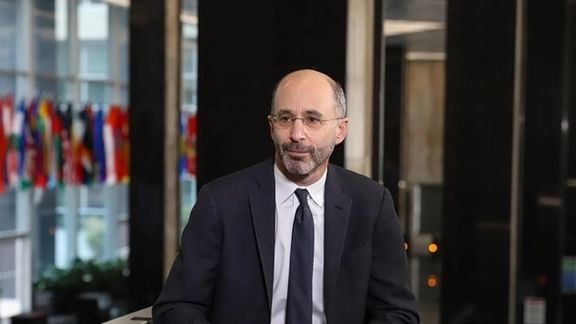
As the case surrounding the suspension of US special envoy to Iran, Robert Malley, stalls, the State Department’s Inspector General has opened an internal investigation into the steps before and after the suspension.
Ryan Holden, the Inspector General’s director of congressional and public affairs, announced last month that a probe had been launched as questions as to Malley’s suspension remain unanswered.
The Diplomatic Security Service revoked Malley's security clearance last April though for another three months, Malley continued to perform many of the duties within his scope of work before being placed on unpaid leave in June.
It comes as the Federal Bureau of Investigation is also still investigating Malley for alleged mishandling of classified information, following State Department allegations in April that it had received information about him “that raises serious security concerns and can be disqualifying under National Security Adjudicative Guidelines”.
In Holden’s announcement of the investigation, he wrote: “The scope of the special review of the suspension of Robert Malley’s clearance will include the procedures the Department used in suspending the clearance as well as actions taken by the Department following the suspension.”
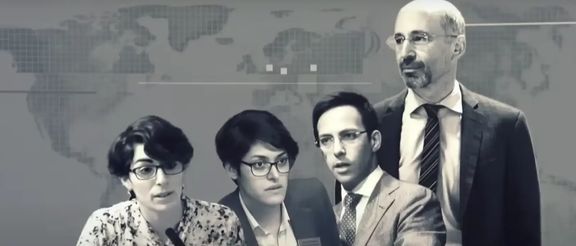
It may also mean that decisions will finally be made about his employment status. Holden said the investigation will include "whether the Department followed proper procedures in suspending his clearance, determining what access to information he could maintain, and deciding the status of his employment”.
State Department staff will now be interviewed as part of the investigation with a new probe into documents and emails surrounding Malley and his work, for a report which will eventually be made public.
“The special review will also examine which officials were involved in these decisions and how the process compares to that used for other types of employees,” explained Holden.
In a joint investigation with Semafor, Iran International revealed in September that senior aides to Malley, both inside the US government and at Crisis Group, had been part of the Iran Experts Initiative, a network of academics and researchers that Iranian officials used to promote Tehran’s positions on its nuclear program during the Obama Administration. This was also not disclosed by Malley.
Earlier this month, Iran International reported that the NGO Malley headed before becoming special envoy, the International Crisis Group, had forged a formal research agreement with Iran’s Foreign Ministry in 2016, which it had not publicly disclosed.
The ongoing mystery surrounding the Malley case comes in the lead up to the November Presidential elections. The Biden administration has remained largely silent on the controversy during a year in which the Republicans have slammed the Democrats’ Iran policy.
Amidst hostage deals freeing up billions of dollars of Iranian funds and almost 200 attacks from Iran’s proxies, Biden has been branded weak and the Malley saga has only added fuel to the fire, Malley seen to be protected by Biden amid allegations of influence and deception.
Fears among Republicans now are that the investigation findings will not be revealed until after the elections, allowing Biden to avoid the shame of the envoy’s shady dealings.
In the wake of the revelations, Senator Lindsey Graham said: "If the allegations in this story are remotely accurate, it would be stunning on so many levels."
Republican Senator Tom Cotton wrote on X: "Senior officials in both the Biden and Obama administrations were likely party to an Iranian-backed PR campaign.”
As the lack of transparency drags on, Republican Congresswoman Claudia Tenney introduced the ‘Robert Malley Act’ in December, in a bid for US lawmakers to more easily access informations on the case. It states that its implementation requires "the heads of executive agencies to disclose, upon request, relevant information to congressional committees regarding the furlough or indefinite suspension of employees.”
Malley himself has also remained largely silent since the scandal broke, issuing only a short statement to Axios after his suspension, hoping for the investigation to be resolved “favorably and soon”.
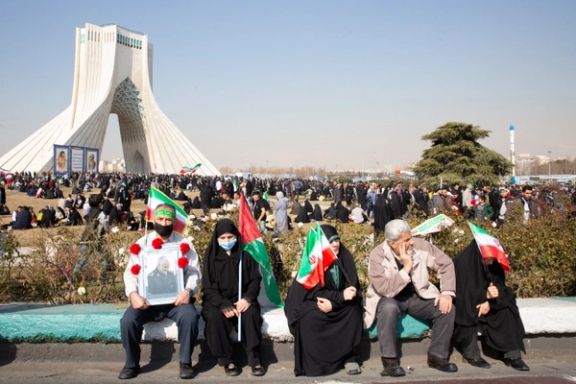
Anniversary rallies for the birth of the Islamic Republic fell flat as Iranians rejected the celebrations amidst ongoing suppression and economic depression.
Images and videos circulated on the main day of celebrations marking the 45th anniversary of the 1979 revolution depicted a stark contrast from previous years, with no apparent presence of people to fill the streets.
In a bid to conceal the failure, Supreme Leader Ali Khamenei said, "People across the country made efforts and showed their enthusiasm and fervor. This year, the people displayed revolutionary pride to the world."
The ten-day period from February 1 commemorates Ayatollah Ruhollah Khomeini's arrival in Tehran from Paris in 1979, culminating in the revolution's victory on February 11th.
People shunned the rallies despite efforts by the government included relaxing enforcement of compulsory hijab, one of the pillars of the 2022 Women, Life, Freedom uprising, and providing recreational activities on the streets. Crowds were sparse and venues largely empty.
Nonetheless, government-controlled media and officials hailed the celebration of the revolution as "epic".
Meanwhile, Iranians in many European and North American cities took to the streets to protest against human rights abuses in Iran as the regime continues its crackdown and accelerates execution of dissidents.
The efforts to portray a veneer of national unity come on the eve of the upcoming elections where voter turnout is expected to be below 15 percent, the country's apathy at an all time low amidst social and economic turmoil.